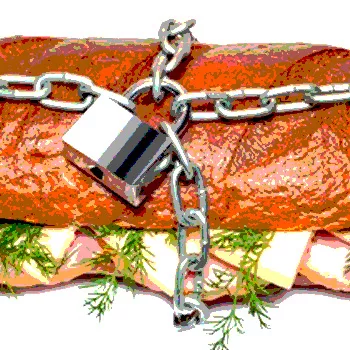Food Safety and Security Is Not Just about Preventing Pathogens

A recent recall was initiated by ConAgra of P.F. Chang’s Home Menu Brand Signature Spicy Chicken and Mongolian Style Beef, due to the possible presence of metal fragments in the accompanying sauce. The products were produced on June 13, 2016 and June 22, 2016, and the problem was discovered on July 1, “…when an establishment employee observed metal fragments while dispensing sugar from a supplier for sauce formulation during processing”,[1] after which the recall occurred. “The metal fragments range in size between 2 and 9 millimeters (mm) in diameter, and are curled, malleable and shiny. The metal fragments may be embedded in the sauce contained within the frozen entrée products.”[1] Fortunately to date, no adverse reactions or injuries have been reported.
This case illustrates well several elements, essential for ensuring the safety and welfare of the consumer public. First, the surveillance and recall program worked! The company is to be commended for the robustness of the program and the rapidness by which the company was able to accomplish the recall. Secondly, the case illustrates the importance of comprehensive food safety and defense programs. Pathogens are not the only thing to be prevented or eliminated from the food supply. Hazards can take many forms: in this case, a physical hazard.
It is important to remember that hazards in any form can be introduced, either accidentally or intentionally. In this case, there is no evidence that the physical contamination was anything other than accidental. ConAgra has no doubt carefully examined the whole of their equipment and its overall production process. Equipment does wear out, and friction can cause metal fragments to be sheared or ground off, contaminating product as it moves through the plant. Companies experiencing such events need to quickly examine the situation to determine if the contamination was accidental or intentional. Cases have emerged in the past where disgruntled employees or other individuals seeking to harm the company image intentionally contaminated food products with metal filings or broken glass. Companies are wise to consider the possibility of disgruntled employees and should build their food safety and defense programs accordingly. Companies should also foster a working environment where all employees are prized partners in diligence. In this case, it was a well-trained and observant employee who did his or her job well, thereby preventing a potential tragedy. Well done!
Robert A. Norton, Ph.D., is a professor at Auburn University and chair of the Food Defense Working Group in the Auburn University Food System Institute (AUFSI). A long-time consultant to federal and state law enforcement agencies, the Department of Defense and industry, he specializes in intelligence analysis, weapons of mass destruction defense and national security. For more information on the topic or for more detailed discussions about specific security related needs, he can be reached at nortora@auburn.edu or by phone at 334.844.7562.
Stephanie Ostrowski, DVM, MPVM, DACVPM, is an associate professor of Public Health at the Auburn University College of Veterinary Medicine, where she teaches courses in food safety and public health. She joined Auburn University after a career as an epidemiologist at the U.S. Centers for Disease Control and Prevention. Dr. Ostrowski is a member of AUFSI, specializing in food animal production medicine, food safety and food security from “farm to fork.” She can be reached through the Food Defense Working Group at Auburn University.
References
1. www.fsis.usda.gov/wps/wcm/connect/FSIS-Content/internet/main/topics/recalls-and-public-health-alerts/recall-case-archive/archive/2016/recall-056-2016-release.
Looking for quick answers on food safety topics?
Try Ask FSM, our new smart AI search tool.
Ask FSM →







